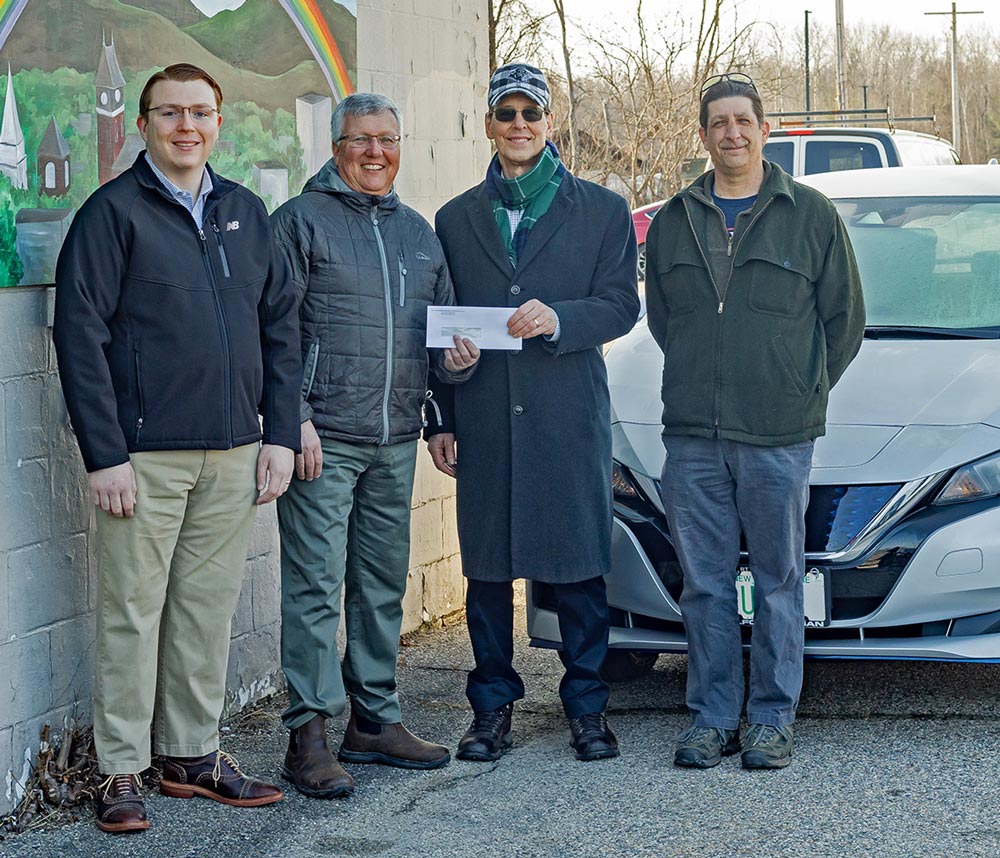
“We’re really pleased that the Co-op approached us with this idea,” says Vice President for Finance and Administration Tracy Claybaugh. “The environmental benefits together with the potential for significant cost savings really make this a ‘win-win’ for everyone.”
Unlike standard electric vehicles that have a one-way relationship with power sources, V2Gs can both draw and return electric current to a cooperating utility. Plymouth State currently has two level 2 (240 volt) chargers located by the Physical Plant Office, which are available to provide power to the Leafs right away. The new level 3 (480 volt) “fast chargers” permit bi-directional charging and discharging.
“This V2G set-up is the first that we know of locally,” says NHEC Business Development Executive Bill Johnstone ’86. “Not only does it offer the flexibility to use or discharge power, it allows users to respond to price signals and encourages electric consumption at times of low demand, which helps the regional power grid and avoids the need to generate more power during peak demand times.”
The University will be recruiting designated student drivers to receive enhanced safety training before a new ride service is launched. The service will be available to assist students lacking their own transportation who would otherwise find it difficult to get to important appointments.
“The Nissan Leaf electric cars coming to campus provide a visible example of our commitment to sustainability and our dedication to engaging students,” says Brian Eisenhauer, director of the office of sustainability. “The addition of the vehicles to our community will allow students, staff, and faculty to have direct experiences with electric vehicles that contribute to meeting our University sustainability goals.”
The benefits of PSU’s electric cars were further detailed in an NHPR story.